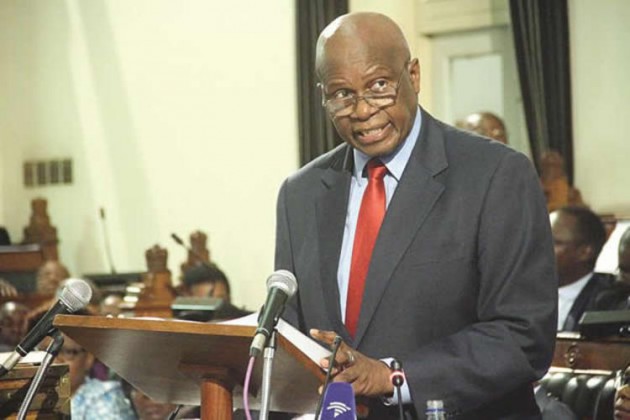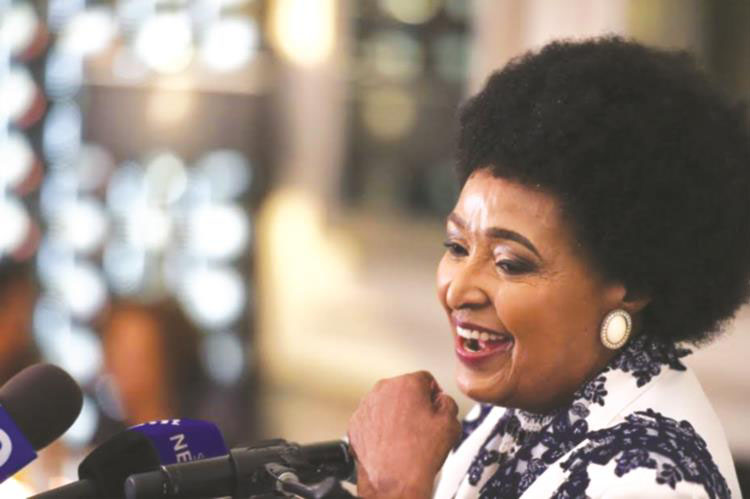Minister Chinamasa averts potentially volatile situation
Zvamaida Murwira Mr Speaker Sir
Finance and Economic Planning Minister Patrick Chinamasa’s decision last week to accede to a financial adjustment of the 2018 National Budget vote in respect of the Parliament of Zimbabwe from the initial $57 million allocation to $80 million averted a potentially volatile situation.
The lesson drawn from this is that budget formulation is and must be a give and take as opposed to rubber-stamping what the Executive would have brought to Parliament. As a matter of brief background, Mr Speaker Sir, Minister Chinamasa last Thursday, acceded to spirited submissions by legislators to raise the budget vote from an allocation of $57 million to $80 million. Parliament had initially bidded for $98 million.
After an emotional debate, characterised by frank exchanges and some bickering, Minister Chinamasa finally agreed to make a compromise with MPs to raise the vote. Debate on the 2018 National Budget was almost derailed after legislators from across the political divide led by Kuwadzana East MP Advocate Nelson Chamisa (MDC-T) rejected a proposal by Minister Chinamasa to temporarily skip debate on the budget vote for Parliament.
Minister Chinamasa had proposed that the House, in the interim, consider other votes while pursuing a solution on the Parliament of Zimbabwe vote, a suggestion that was shot down by backbenchers. The major thrust of their argument, Mr Speaker Sir, you will recall, was to submit that Parliament was a third arm of the State playing a crucial role and that its importance should be acknowledged through allocation of reasonable resources to enable it to effectively discharge its legislative, oversight and representative roles.
Of course, Mr Speaker Sir, one might argue that the backbenchers took a cue or some encouragement or courage, (or all the three) from your exhortations during the post-budget analysis workshop when you urged them not to rubber-stamp the budget given the poor resources allocated to Parliament. Clearly, a deadlock was on the horizon as legislators stood their ground to say there was need to first dispose of the item on budget vote for Parliament of Zimbabwe before proceeding to subsequent items.
“I just wanted us to have a conversation and I was going to move that the debate on this one be stood down to allow me to have a conversation with colleagues. I do not think that it is something that we can discuss and agree across the table. So, we defer it to the end of the budget then we can have a conversation. I agree with you in some respects and in other respects, I do not agree, but we will show you the calculations so that we can reach a consensus on the matter,” said Minister Chinamasa. Adv Chamisa, with the backing of fellow legislators, vehemently resisted Minister Chinamasa’s proposal.
“Through you Hon Chair, we are kindly persuading the Hon Minister to first exhaust this parliamentary issue before we go to the other Votes for a good reason. The reason being that, we do not want to detain the Minister unnecessarily; we deal with this one which is a very crucial issue and once we deal with this one, it is going to be very easy . . . So, help us to help you and we are ready to help you Hon Minister. We do not normally ask for this kind of cooperation between Parliament and the Minister. If you want us either we temporarily adjourn or we do whatever is necessary to deal with this issue. It is in your interest to deal with this issue. Once you deal with this one, the rest is history.
“We can assure you, it can sail,” said Adv Chamisa. After intense deliberations with chief whips, before parliamentary committee of supply chairperson, Ms Melody Dziva, Minister Chinamasa then went back to the floor to announce a compromise deal they had struck.
“The worst thing that I do not want to do is to promise you huge amounts which will not be available when you want it. Ndoita sendirikukunyeperai, iyo mari yacho isipo, but after the consultations and I am very clear that the mandate of Parliament must be discharged — we have agreed that the total figure of Vote should be amended to $80 million. So Madam Chair, I move that the Parliament of Zimbabwe Vote be adopted as amended to $80 million,” said Minister Chinamasa.
Mr Speaker Sir, what is encouraging is that Minister Chinamasa chose to be pragmatic. In other words, instead of resorting to the unorthodox means of whipping members, which is usually used by political parties, Minister Chinamasa was man enough to engage legislators, listen to their concerns, proffer his views and ultimately reach a compromise.
At the end of the day, both parties seemed satisfied that it did the best that was there under the circumstances. Mr Speaker Sir, while other people might complain that it is not only Parliament of Zimbabwe that was underfunded, what is important and worth appreciating was the desire by Minister Chinamasa to engage, notwithstanding differences in people’s perception on a given issue at hand.
One additional demonstration of tolerance by Minister Chinamasa in respect of different views relates to an assessment by Bulawayo South MP Mr Eddie Cross of the annual inflation rate.
“On inflation, you remain sceptical about our average 3 percent. Let us see what will come out as the final figure for last year. We still think that the average inflation for last year will be 3 percent.
“If it turns out to be more, you were actually saying it could be 30 percent and if it ends up that , I will come and apologise to you but if it does not, you must come and apologise to me,” said Minister Chinamasa. In the final analysis, Mr Speaker Sir, arms of the State should complement each other without one arm seeking to impose its wishes on the others.









Comments